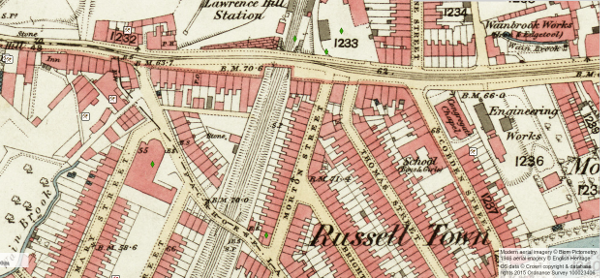This year’s first celandines
Spotted on Stapleton Road this morning.

Actually, the plant’s full name is the lesser celandine (Ficaria verna).
According to the Woodland Trust, lesser celandines may be found along damp woodland paths and tracks, as well as stream banks and in ditches. They also grow well in the shade of hedgerows, in meadows and in gardens: they usually start to flower between January and April each year.
As one of the first flowers to appear after winter, they provide an important nectar source for early pollinating insects, including some bee species.
In earlier times, the plant had medicinal and nutritional uses: lesser celandine was once believed to be a remedy for haemorrhoids and was known as ‘pilewort’. It is also high in vitamin C and was used to prevent scurvy.
Furthermore, the lesser celandine has its place in literature too. William Wordsworth (1770-1850) composed three poems to the plant between 1802 and 1807, of which one – To the Small Celandine – is reproduced below.
PANSIES, lilies, kingcups, daisies,
Let them live upon their praises;
Long as there’s a sun that sets,
Primroses will have their glory;
Long as there are violets,
They will have a place in story:
There’s a flower that shall be mine,
‘Tis the little Celandine.Eyes of some men travel far
For the finding of a star;
Up and down the heavens they go,
Men that keep a mighty rout!
I’m as great as they, I trow,
Since the day I found thee out,
Little Flower!–I’ll make a stir,
Like a sage astronomer.Modest, yet withal an Elf
Bold, and lavish of thyself;
Since we needs must first have met
I have seen thee, high and low,
Thirty years or more, and yet
‘Twas a face I did not know;
Thou hast now, go where I may,
Fifty greetings in a day.Ere a leaf is on a bush,
In the time before the thrush
Has a thought about her nest,
Thou wilt come with half a call,
Spreading out thy glossy breast
Like a careless Prodigal;
Telling tales about the sun,
When we’ve little warmth, or none.Poets, vain men in their mood!
Travel with the multitude:
Never heed them; I aver
That they all are wanton wooers;
But the thrifty cottager,
Who stirs little out of doors,
Joys to spy thee near her home;
Spring is coming, Thou art come!Comfort have thou of thy merit,
Kindly, unassuming Spirit!
Careless of thy neighbourhood,
Thou dost show thy pleasant face
On the moor, and in the wood,
In the lane;–there’s not a place,
Howsoever mean it be,
But ’tis good enough for thee.Ill befall the yellow flowers,
Children of the flaring hours!
Buttercups, that will be seen,
Whether we will see or no;
Others, too, of lofty mien;
They have done as worldlings do,
Taken praise that should be thine,
Little, humble Celandine!Prophet of delight and mirth,
Ill-requited upon earth;
Herald of a mighty band,
Of a joyous train ensuing,
Serving at my heart’s command,
Tasks that are no tasks renewing,
I will sing, as doth behove,
Hymns in praise of what I love!
Incidentally, back in 2011, the Daily Mirror christened Stapleton Road “Britain’s worst street” where “murder, rape, shootings, drug-pushing, prostitution, knifings and violent robbery are commonplace“.
As a local resident for over 40 years, I didn’t agree then and nowadays still don’t agree with or recognise the Mirror’s sensationalist description. Surely somewhere that dangerous wouldn’t be home to such gentle and uplifting life-forms as the lesser celandine, which have inspired such souls as one of the great English Romantic poets?











